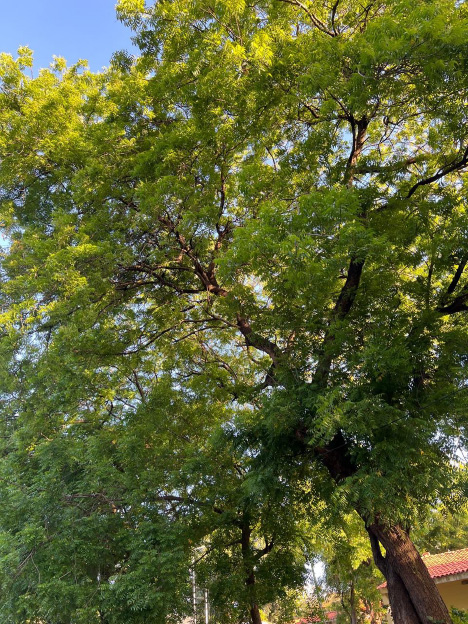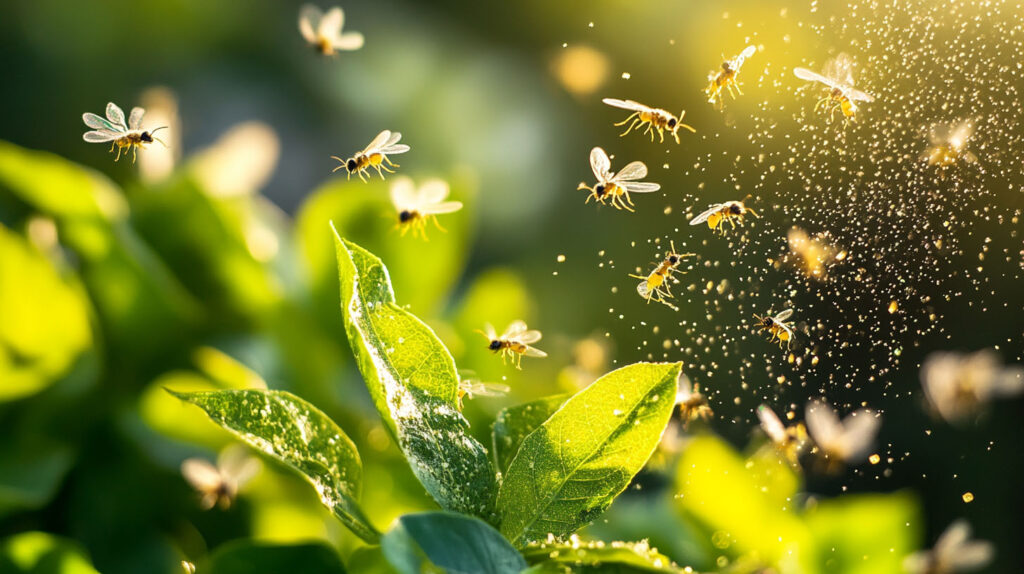Africa hosts many plant species that have long been used in traditional medicine and natural remedies. Natural insect repellents of some African plants have been in practice, and, of all these plants, a few are effective natural insect repellents that represent an eco-friendly alternative to chemical-based repellents. As concerns about synthetic insecticides’ environmental and health effects grow, these plants are also beginning to attract attention as a possible alternative to pest control.
Citronella Grass as a Natural Repellent
Citronella grass (Cymbopogon nardus) is one of the most widely used natural insect repellent plants, and it is native to tropical Africa. Citronella oil extracted from the plant is usually used as a remedy to repel mosquitoes or other insects in candles, sprays, or lotion.
The strong lemon-like scent masks human odors, enabling mosquitoes to locate their target much less easily. Not only does citronella oil work, but it does so without having an adverse effect on the skin, therefore making it the preferred natural insect repellent product.
Neem’s Effectiveness as an Insect Repellent
Neem (Azadirachta indica) is another power plant found especially in East and West Africa. For ages, neem oil has been used as a natural insect repellant, keeping mosquitoes, fleas, and lice away. Compounds in Neem disrupt the life cycle of insects, so they can’t feed, breed, or grow.
Neem is often used in agriculture as an organic pesticide because of its versatility and as a personal insect repellent.

Lemon Eucalyptus and Its Powerful Insect Repelling Properties
Lemon eucalyptus (Corymbia citriodora) is another outstanding insect repellent, with the tree native to many parts of Africa. The oil from their leaves has been found to contain a compound — p-menthane 3,8-diol (PMD) — that has proven to be as effective as DEET, the main chemical in most chemical insect repellents.
Lemon eucalyptus oil has a fresh lemon scent and is added to sprays or lotions to deter mosquitoes and other biting insects.
Garlic’s Natural Insect-Repellent Qualities
Lastly, garlic (Allium sativum), which is widely cultivated throughout the African continent, contains sulfur compounds that are insect-repellent. While garlic doesn’t seem like the most pleasant odiferous means of personal odor control, it can be used in gardens and farms to repel pests such as aphids and mosquitoes.

In conclusion, the use of African plants such as citronella, Neem, lemon eucalyptus, and garlic as natural insect repellents is proving to be an effective alternative to chemical insect repellents. In addition to their effectiveness as pest deterrents, these plants create a sustainability factor for the environment and human health.
The growing concerns over the ecological and health impacts of synthetic repellents make these plants a viable solution to pest control, offering a greener, less dangerous way to address insects in personal and farm environments.
References
Bowlsby, M. B. (2020). Repellent activity of DEET, Icaridin, Permethrin, lemon eucalyptus oil (Corymbia citriodora), and tea tree oil (Melaleuca alternifolia) against Ornithodoros turicata nymphs.
Eid, A., Jaradat, N., & Elmarzugi, N. (2017). A Review of chemical constituents and traditional usage of the Neem plant (Azadirachta Indica). Palestinian Medical and Pharmaceutical Journal, 2(2), 3.
Giday, M. (2018). Traditional knowledge of people on plants used as insect repellents and insecticides in Raya-Azebo district, Tigray region of Ethiopia.
Kumoro, A. C., Wardhani, D. H., Retnowati, D. S., & Haryani, K. (2021, February). A brief review of the characteristics, extraction, and potential industrial applications of citronella grass (Cymbopogon nardus) and lemongrass (Cymbopogon citratus) essential oils. In IOP Conference Series: Materials Science and Engineering (Vol. 1053, No. 1, p. 012118). IOP Publishing.
Wangai, L. N., Kamau, K. K., Munyekenye, G., Nderu, D., Maina, E., Gitau, W., … & Otieno, F. (2020). Efficacy of plant-based repellents against Anopheles mosquitoes: A systematic review. Biomed. Sci, 6, 44.
Yusuf, Z. (2019). THE ROLE OF NEEM (Azadirachta indica) SEED AND GARLIC (Allium sativum) BULB POWDERS AS BIO-PESTICIDES AGAINST ADULT MAIZE WEEVIL (Sitophilus zeamais Motsch.) IN STORED MAIZE (Doctoral dissertation, Haramaya university).



thanks